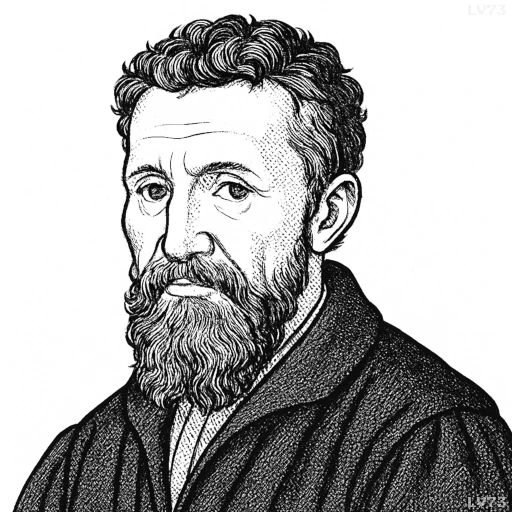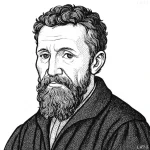“The true work of art is but a shadow of the divine perfection.”

- March 6, 1475 – February 18, 1564
- Born in the Republic of Florence (now Italy)
- Sculptor, painter, architect, poet
table of contents
Quote
“The true work of art is but a shadow of the divine perfection.”
Explanation
In this quote, Michelangelo expresses his belief that art, in its highest form, is a reflection of the divine and a mere approximation of the perfect beauty and order of the universe, which he saw as being divinely ordained. Michelangelo, deeply influenced by his Christian faith, believed that human creativity was a gift from God, and that the artist’s task was to channel this divine inspiration to create works that approached divine perfection. His masterpieces, such as the Creation of Adam in the Sistine Chapel, are often seen as attempts to capture the sublime, transcendent beauty that he believed existed in the world around him and in the divine.
This idea remains influential in modern discussions about the role of art and creativity. While contemporary art may emphasize individual expression and subjective interpretation, the notion that art is a reflection of something higher still resonates in many artistic traditions. In today’s context, artists may see their works as metaphors for deeper truths or as attempts to interpret the invisible or transcendent, whether through abstract art, music, or literature. In the case of abstract expressionism, for instance, the artist may not directly represent the divine, but instead express a sense of spiritual or emotional depth that points to something beyond the physical world.
Michelangelo’s perspective also touches on the idealization of human form and nature in classical art, which sought to represent the divine or perfect state through the human figure. This idealistic view influenced later artists like Rafael and even Baroque painters such as Caravaggio, who sought to infuse their works with a sense of divinity or transcendence. Even in the modern era, many artists—whether through realism, surrealism, or symbolism—continue to explore the relationship between art and a higher sense of truth, beauty, or perfection.
Would you like to share your impressions or related stories about this quote in the comments section?
